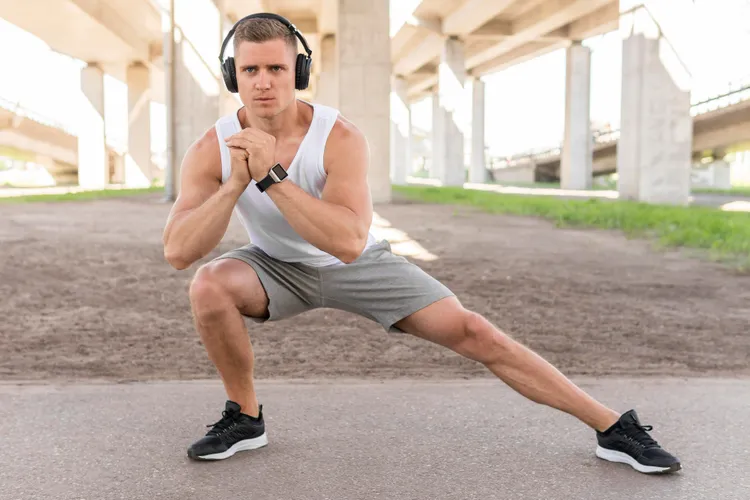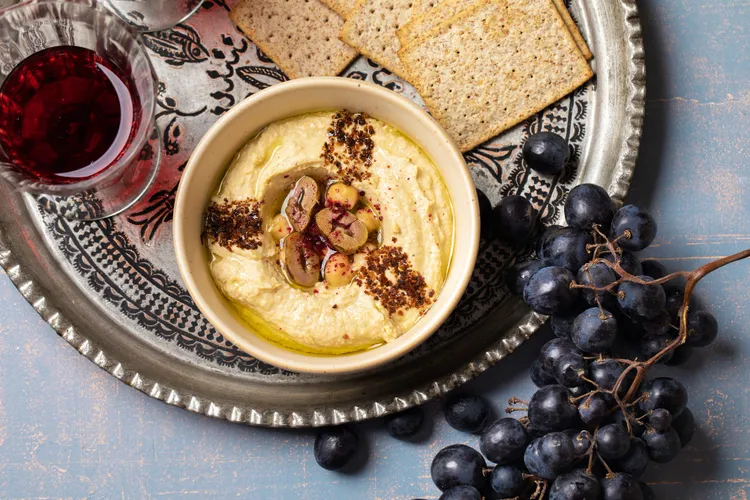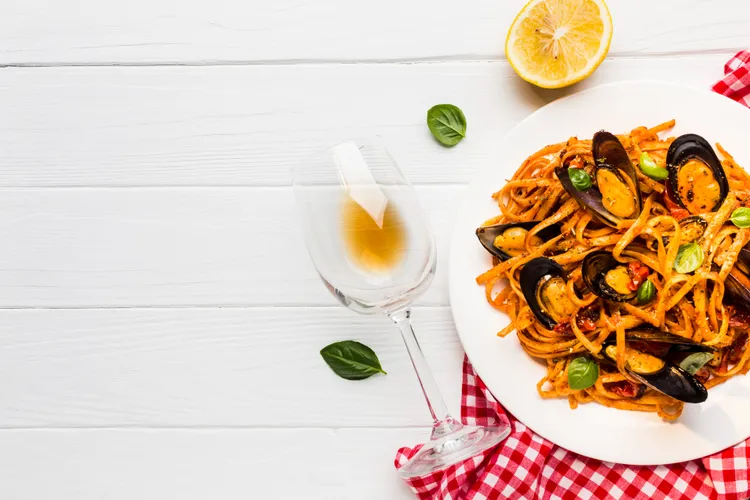What to Eat Before a Workout: Fueling Your Body for Peak Performance
Proper nutrition before a workout can make or break your performance, energy levels, and recovery. Whether you’re hitting the gym for strength training, going for a run, or practicing yoga, what you eat beforehand provides the fuel your body needs to power through and achieve your fitness goals. Pre-workout meals or snacks are about more than just staving off hunger - they optimize energy, enhance endurance, support muscle function, and set the stage for effective recovery.

Why Pre-Workout Nutrition Matters
Your body relies on stored and readily available energy to perform physical activity. The food you eat before a workout directly impacts your glycogen stores (carbohydrates stored in muscles), blood sugar levels, and muscle readiness. Here’s why pre-workout nutrition is critical:
- Boosts Energy and Performance:
- Carbohydrates are the body’s primary fuel source during exercise, providing quick energy for muscles. Eating carbs before a workout ensures glycogen stores are topped up, enhancing endurance and strength.
- Science Says: A 2018 study in Sports Medicine found that pre-workout carbohydrate intake improves performance in high-intensity and endurance exercises by maintaining blood glucose levels.
- Supports Muscle Preservation:
- Protein consumed before exercise provides amino acids to minimize muscle breakdown during intense workouts, especially strength training.
- Science Says: A 2020 study in The Journal of the International Society of Sports Nutrition showed that pre-workout protein can enhance muscle protein synthesis when paired with post-workout nutrition.
- Prevents Fatigue and Dizziness:
- Low blood sugar from fasting or inadequate nutrition can lead to lightheadedness, fatigue, or poor focus during exercise. A balanced pre-workout meal stabilizes blood sugar.
- Science Says: A 2019 study in Nutrients found that eating a balanced meal 2-3 hours before exercise reduces fatigue and improves workout quality.
- Enhances Hydration and Electrolyte Balance:
- Proper hydration and electrolytes (e.g., sodium, potassium) before exercise support muscle function and prevent cramps or dehydration.
- Science Says: A 2021 review in Journal of Athletic Training noted that pre-workout hydration improves thermoregulation and performance in hot or intense conditions.
- Improves Recovery:
- Pre-workout nutrition primes your body for post-workout recovery by ensuring glycogen and amino acid availability, reducing muscle soreness and fatigue.
- Science Says: A 2022 study in Frontiers in Nutrition highlighted that pre-workout carbs and protein improve glycogen restoration post-exercise.
The Key Components of Pre-Workout Nutrition
A well-rounded pre-workout meal or snack should include three main components: carbohydrates, protein, and hydration, with optional healthy fats depending on timing and workout type. Here’s a breakdown:
- Carbohydrates:
- Why: Provide quick or sustained energy by replenishing glycogen and maintaining blood sugar.
- How Much: 0.5-2g per kg of body weight, depending on workout intensity and timing (e.g., 35-140g for a 70kg person). Closer to the workout, opt for smaller amounts of simple carbs.
- Sources: Whole grains (oats, brown rice), fruits (bananas, apples), starchy vegetables (sweet potatoes), or quick-digesting options like rice cakes.
- Protein:
- Why: Supplies amino acids to protect muscles and support recovery.
- How Much: 10-20g, depending on body size and workout type. Larger amounts (15-20g) are ideal for strength training.
- Sources: Eggs, Greek yogurt, chicken, tofu, or protein powders (whey, pea).
- Hydration:
- Why: Ensures optimal muscle function, thermoregulation, and endurance.
- How Much: Drink 16-20 oz of water 2-3 hours before exercise, and 8-10 oz 10-20 minutes before. Add electrolytes for intense or sweaty workouts.
- Sources: Water, coconut water, or low-sugar electrolyte drinks.
- Healthy Fats (Optional):
- Why: Provide sustained energy for longer, lower-intensity workouts but digest slowly, so use sparingly close to exercise.
- Sources: Avocado, nuts, seeds, or nut butter.
- Micronutrients:
- Why: Support energy metabolism (e.g., B vitamins) and muscle function (e.g., magnesium, potassium).
- Sources: Fruits, vegetables, or whole grains.
Timing: When to Eat Before a Workout
Timing is crucial for pre-workout nutrition to avoid digestive discomfort while ensuring energy availability:
- 2–3 Hours Before: A full, balanced meal with carbs, protein, and moderate fats. Ideal for morning workouts or when you have time to digest.
- Example: Chicken with quinoa and steamed broccoli.
- 30–60 Minutes Before: A small, carb-focused snack with minimal protein and low fat to avoid stomach upset. Best for quick pre-workout fuel.
- Example: Banana with a small scoop of peanut butter.
- Fasted Workouts: Suitable for low-intensity or short sessions (<60 minutes), but performance may suffer for intense workouts. If fasting, ensure post-workout nutrition is robust.
- Science Says: A 2020 study in Journal of Clinical Medicine found that fasted workouts may increase fat oxidation but reduce performance in high-intensity exercise compared to eating beforehand.
The Best Foods to Eat Before a Workout
Here’s a curated list of the best pre-workout foods, grouped by nutrient category, with portion suggestions and benefits:
Carbohydrate-Rich Foods
- Oats (1/2 cup cooked, ~27g carbs, 150 calories):
- Slow-release carbs for sustained energy, plus fiber and B vitamins.
- Ideal 2-3 hours before for steady fuel.
- Banana (1 medium, ~27g carbs, 90 calories):
- Quick-digesting carbs and potassium to prevent cramps.
- Perfect 30-60 minutes before exercise.
- Sweet Potato (1/2 cup mashed, ~20g carbs, 100 calories):
- Complex carbs with vitamin A for sustained energy.
- Great 2-3 hours before workouts.
- Rice Cakes (2 cakes, ~14g carbs, 70 calories):
- Light, quick-digesting carbs for last-minute fuel.
- Ideal 30-60 minutes before.
- Whole-Grain Bread (1 slice, ~12g carbs, 80 calories):
- Balanced carbs for energy, pairs well with protein.
- Good 1-2 hours before exercise.
- Apples (1 medium, ~25g carbs, 95 calories):
- Moderate carbs with fiber and hydration.
- Best 1-2 hours before.
Protein-Rich Foods
- Greek Yogurt (Plain, 3/4 cup, ~17g protein, 100 calories):
- High in protein, easy to digest, and pairs well with fruit.
- Ideal 1-2 hours before.
- Eggs (2 large, ~12g protein, 140 calories):
- Complete protein with leucine for muscle support.
- Best 2-3 hours before.
- Chicken Breast (3 oz, ~26g protein, 140 calories):
- Lean protein for sustained amino acid release.
- Great 2-3 hours before strength training.
- Protein Powder (1 scoop, ~20–25g protein, 120 calories):
- Convenient, fast-digesting protein (whey or plant-based).
- Ideal 30-60 minutes before in a shake.
- Tofu (3/4 cup, ~15g protein, 150 calories):
- Plant-based protein with magnesium for muscle function.
- Best 2-3 hours before.
Hydration and Electrolyte Sources
- Water: Zero calories, essential for hydration.
- Drink 16-20 oz 2-3 hours before, 8-10 oz 10-20 minutes before.
- Coconut Water (8 oz, ~11g carbs, 45 calories):
- Natural electrolytes (potassium, sodium) for intense workouts.
- Electrolyte Tablets (e.g., Nuun, ~1g carbs, 10 calories):
- Low-sugar option for pre-workout hydration.
Healthy Fats (Use Sparingly)
- Almond Butter (1 tbsp, ~3g protein, 7g fat, 100 calories):
- Sustained energy for longer workouts, best 2–3 hours before.
- Avocado (1/4 avocado, ~4g fat, 60 calories):
- Healthy fats with potassium, ideal 2–3 hours before.
Special Considerations for Pre-Workout Nutrition
- Workout Type and Intensity:
- Strength Training: Prioritize protein (15-20g) with moderate carbs (20-40g) to fuel muscles and prevent breakdown.
- Endurance: Emphasize carbs (40-70g) with moderate protein (10-15g) for glycogen stores.
- Light Exercise (e.g., Yoga): A small snack (5-10g carbs, 5-10g protein) is sufficient.
- Dietary Preferences:
- Vegan/Vegetarian: Use tofu, tempeh, or plant-based protein powders with fruits or oats.
- Low-Carb/Keto: Focus on protein (eggs, chicken) with low-carb carbs (berries, zucchini) and fats (avocado).
- Gluten-Free: Choose gluten-free oats, quinoa, or rice-based carbs.
- Digestive Sensitivity:
- Avoid high-fiber or high-fat meals close to exercise to prevent bloating or cramps.
- Test foods to find what sits well (e.g., some tolerate yogurt better than eggs).
- Timing and Schedule:
- Morning workouts may require lighter snacks if time is short. Evening workouts can leverage a full meal eaten earlier.
- If fasted, sip an electrolyte drink to maintain hydration and energy.
Common Mistakes to Avoid
- Eating Too Much or Too Close: A heavy meal or high-fat/fiber snack right before exercise can cause sluggishness or cramping.
- Skipping Pre-Workout Nutrition: Fasting may reduce performance, especially for intense or long workouts.
- Overloading on Sugar: Sugary drinks or snacks (e.g., candy, soda) cause quick energy spikes but may lead to crashes.
- Neglecting Hydration: Dehydration impairs performance and increases fatigue. Start hydrating 2–3 hours before.
- Ignoring Personal Needs: Experiment to find what works for your body, as tolerance varies.
Fuel Smart, Perform Strong
Pre-workout nutrition is your secret weapon for maximizing energy, performance, and recovery. By combining carbohydrates (20–70g) for fuel, protein (10–20g) for muscle support, and hydration for optimal function, you set yourself up for success in any workout. Choose nutrient-dense foods like oats, bananas, Greek yogurt, or chicken, and tailor your choices to your workout type, timing, and dietary needs. Whether it’s a full meal 2–3 hours before or a quick snack 30 minutes prior, prioritize balance and enjoyment to make fueling feel effortless.
Next time you prep for a workout, grab a banana with peanut butter, whip up a protein smoothie, or enjoy a hearty oatmeal bowl. Your body will thank you with better performance, less fatigue, and faster recovery.









